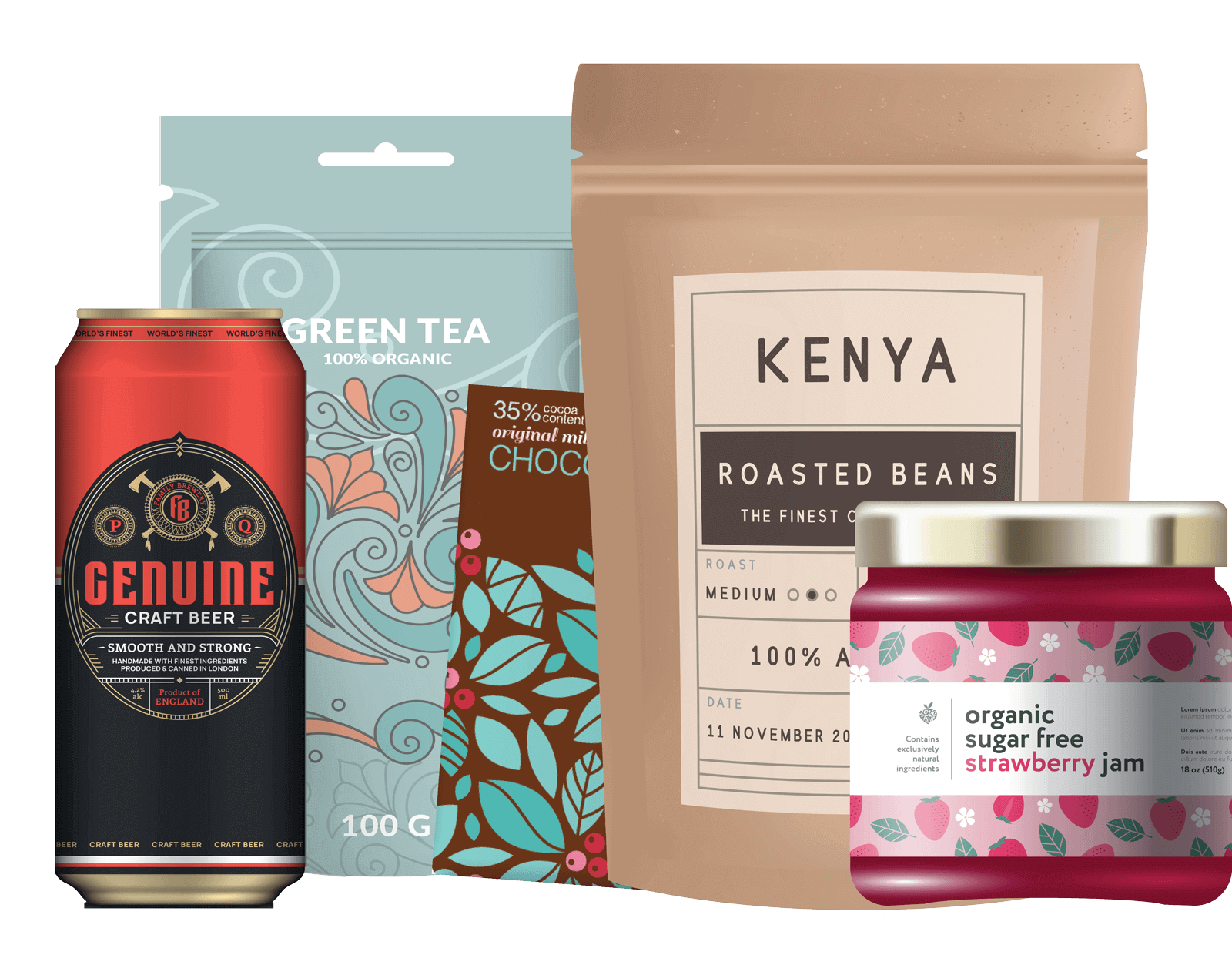Going “green” can often have companies and brands examining how the cost, the value, and the risk of change will impact the customer’s intent to purchase compared to other options. Are post-consumer resin (PCR) packaging options a good choice for your product and your target audience?

PCR is a type of resin that has already been recycled and is ready to use again. With sustainability awareness increasing across the nation, we’ve learned some interesting data from 6,000 consumers in 11 countries across North America, Europe, and Asia in a recent survey from Accenture. Even considering the potentially increased cost of products, researchers pointed out that “72% of respondents reported that they were actively buying more environmentally friendly products than they did five years ago, while 81% said they expected to buy even more over the next five years.”
The increased focus on environmentally friendly products correlates with the fact that 7 in 10 millennials are likely to support a company that includes sustainability in its corporate agenda.
Integrating sustainable options like PCR into consumer products can yield the following benefits:
- Reducing the carbon footprint and promoting an environmental conscience mindset within your business or company
- As a “green” company, your brand and business will be able to reach and infiltrate new markets and audiences that are actively looking for sustainable options
- Petroleum is a primary ingredient in plastic production, but it is also a limited resource. By limiting the amount of petroleum used in the production process, you’ll be utilizing a more sustainable approach.
4 Applications of Post-Consumer Resins
Plastic is one of the most used materials in the packaging industry. The majority of this plastic is discarded once the consumer uses the product. While plastic can be recycled, it takes 450 years for a plastic water bottle to break down. If materials are not recycled, there is a chance that it will end up in landfills or polluting our lakes and oceans, therefore endangering the environment.
There are options for brands and companies when it comes to integrating PCR into their products.

Monolayer HDPE PCR
PCR that utilizes high-density polyethylene (HDPE) is used for a wide range of applications. One of the main advantages of HDPE is its versatility as it’s used for thin plastics that make anything from beverage bottles to harder plastic products like milk crates.
On top of HDPE being versatile, it is one of the easiest plastic polymers to recycle. With 30 million tons recycled a year, HDPE post-consumer resins are readily available to produce sustainable packaging options. The vast availability allows HDPE post-consumer resin packaging to contain 100% recycled materials.
Bi-layer HDPE PCR
The difference here is that bi-layer HDPE can be extruded with virgin materials to create brand new packaging. This process allows your packaging to look the same, but it transforms into a sustainable option for consumers with this material.
HDPE post-consumer resins also provide a cost-effective option as they allow for multiple extrusions that will blend in lower-cost materials into resin and allow up to 100% PCR material to be used.
PET PCR
PET or polyethylene terephthalate is one of the most used plastics in the industry, making up the majority of water and soda bottles, among other packaging solutions. This also makes PET one of the most recycled PCR options available.
PET post-consumer resins are a type of packaging that is usually transparent. It is a great way for a brand to display its product visually while also promoting it as a sustainable option.
PCR PP Closures
The main benefit of utilizing PCR PP (polypropylene) for closures is that they complete a container with 100% recyclable materials. Some of the major applications for PCR PP closures include tubes, bottles, and jars.
Big Brands Embrace PCR Packaging and Sustainable Options
Global brands like PepsiCo and Nestle are starting to recognize the consumer demand for sustainable packaging. These brands have begun to emphasize creating sustainable packaging solutions to embrace the “green” trend.
The Ellen MacArthur Foundation further demonstrated this trend in big brands in its first annual New Plastics Economy Global Commitment report. The report presents a transparent look at how almost 200 businesses are looking to reshape the plastic system. Some of the major brands included in this report are:
- Coca-Cola
- PepsiCo
- Nestle
- Unilever
- Mars
- L’Oreal
If the big brands are doing it and actively trying to increase their use of PCR, it makes sense to consider it a part of your brand’s sustainability and overall strategy. These companies and brands are all making the jump to sustainable options by choice. It also allows brands to reach customers searching for sustainable options, which continues to grow as time goes on.
Contact MJS Packaging Today
If your brand or company is interested in utilizing PCR packaging, MJS Packaging can help you reach that goal! We provide multiple sustainable packaging solutions for all types of products.
Contact one of our knowledgeable packaging solutions specialists online or call us at (800) 915-2262 today.




